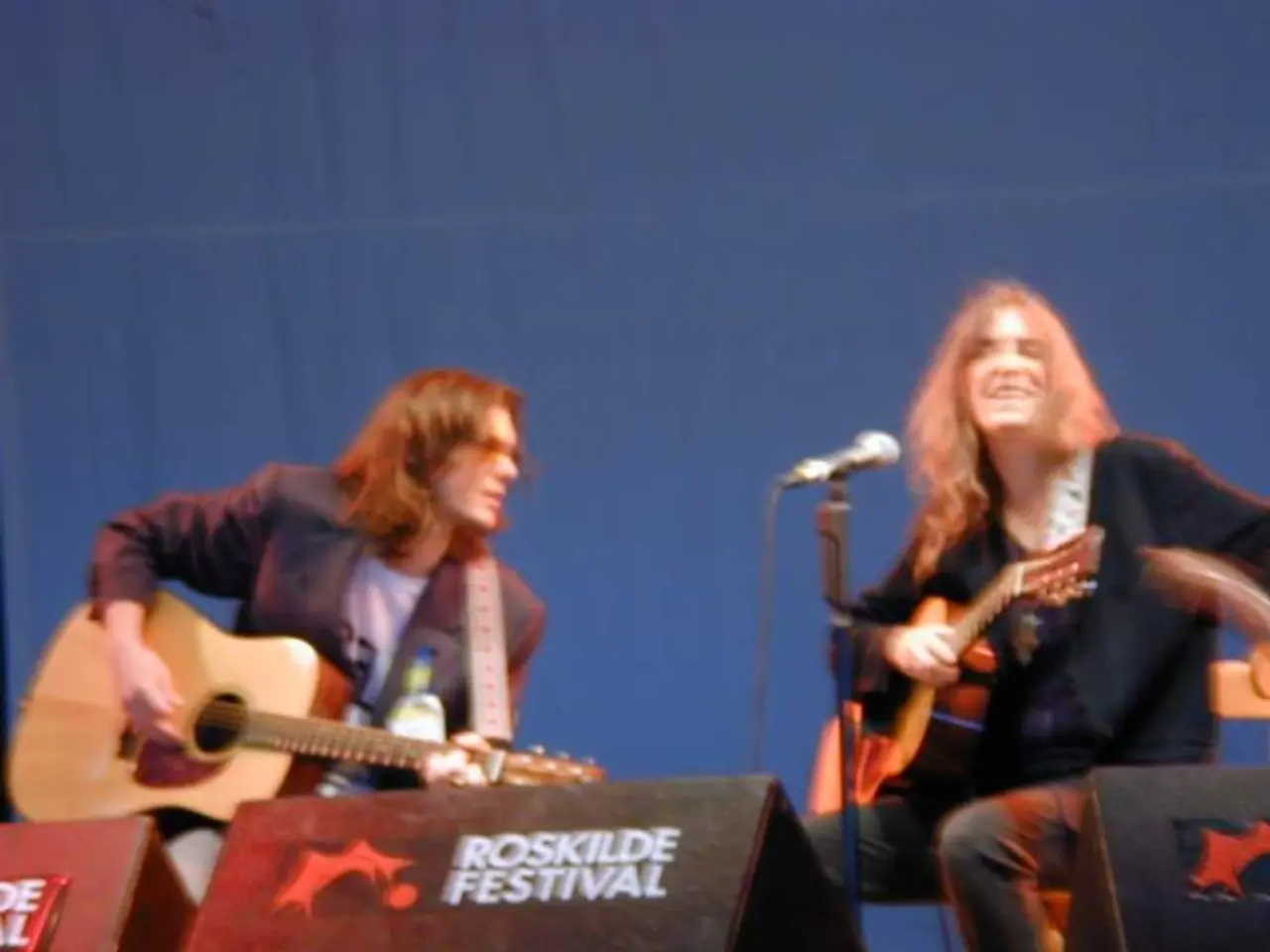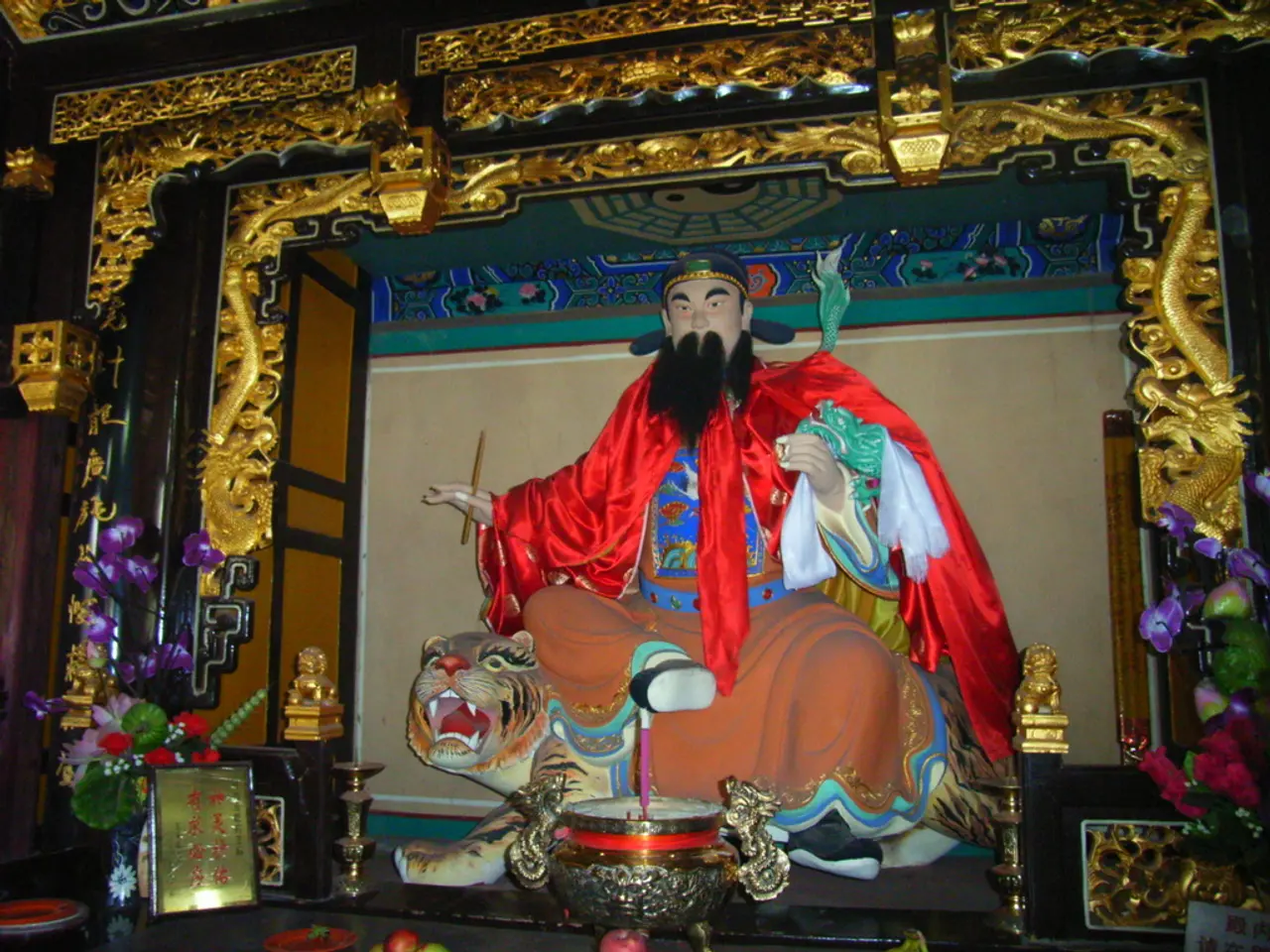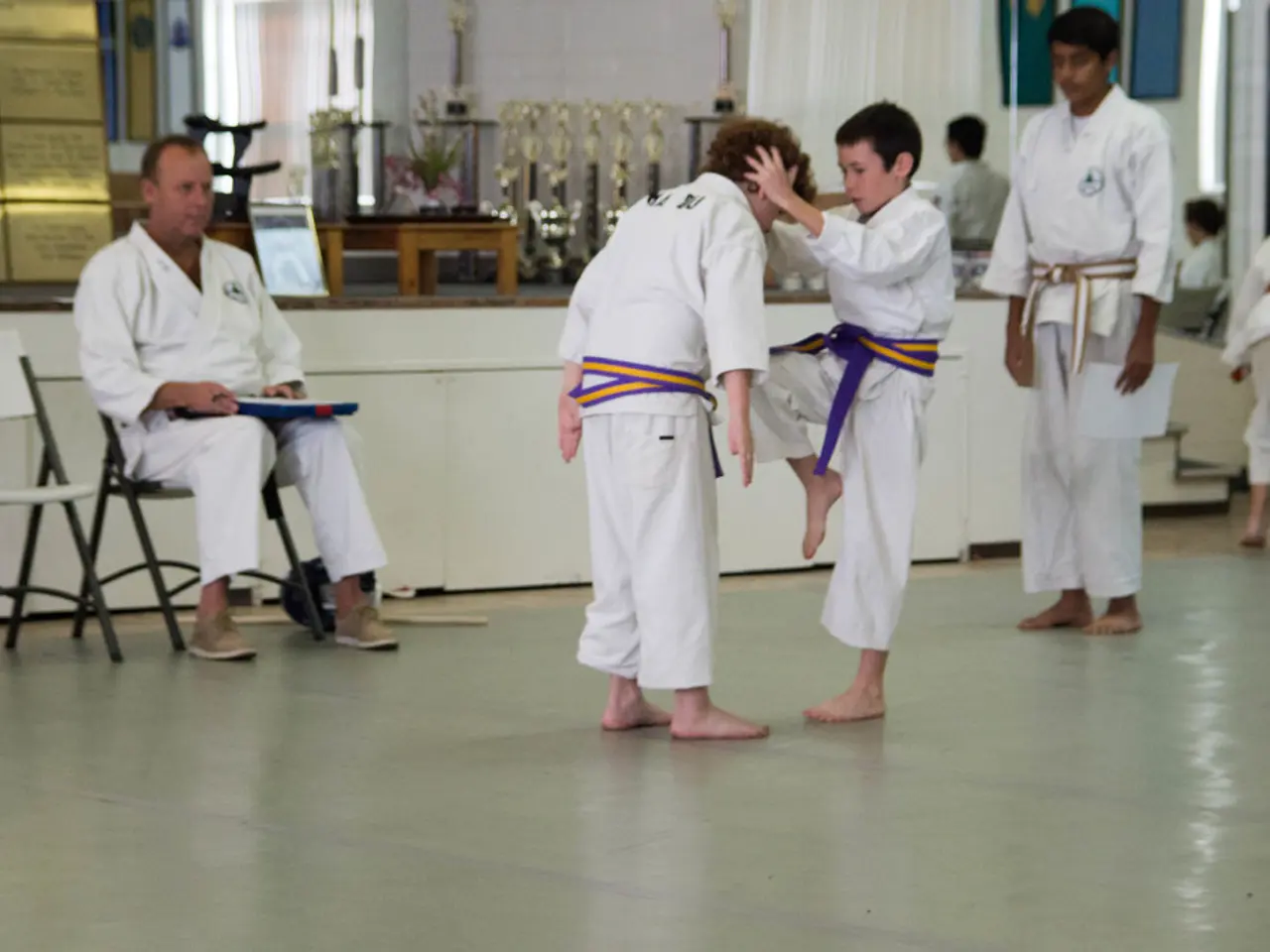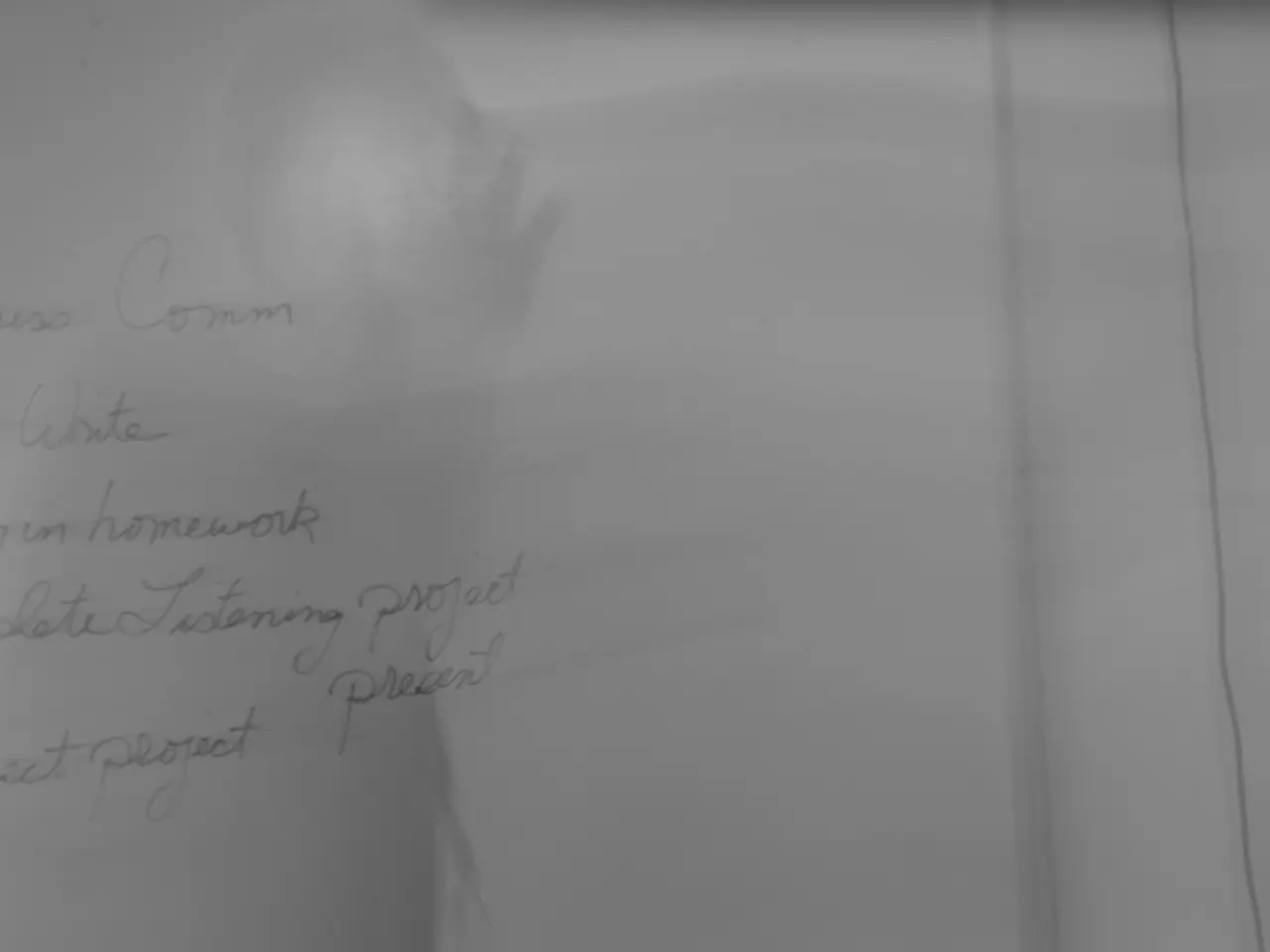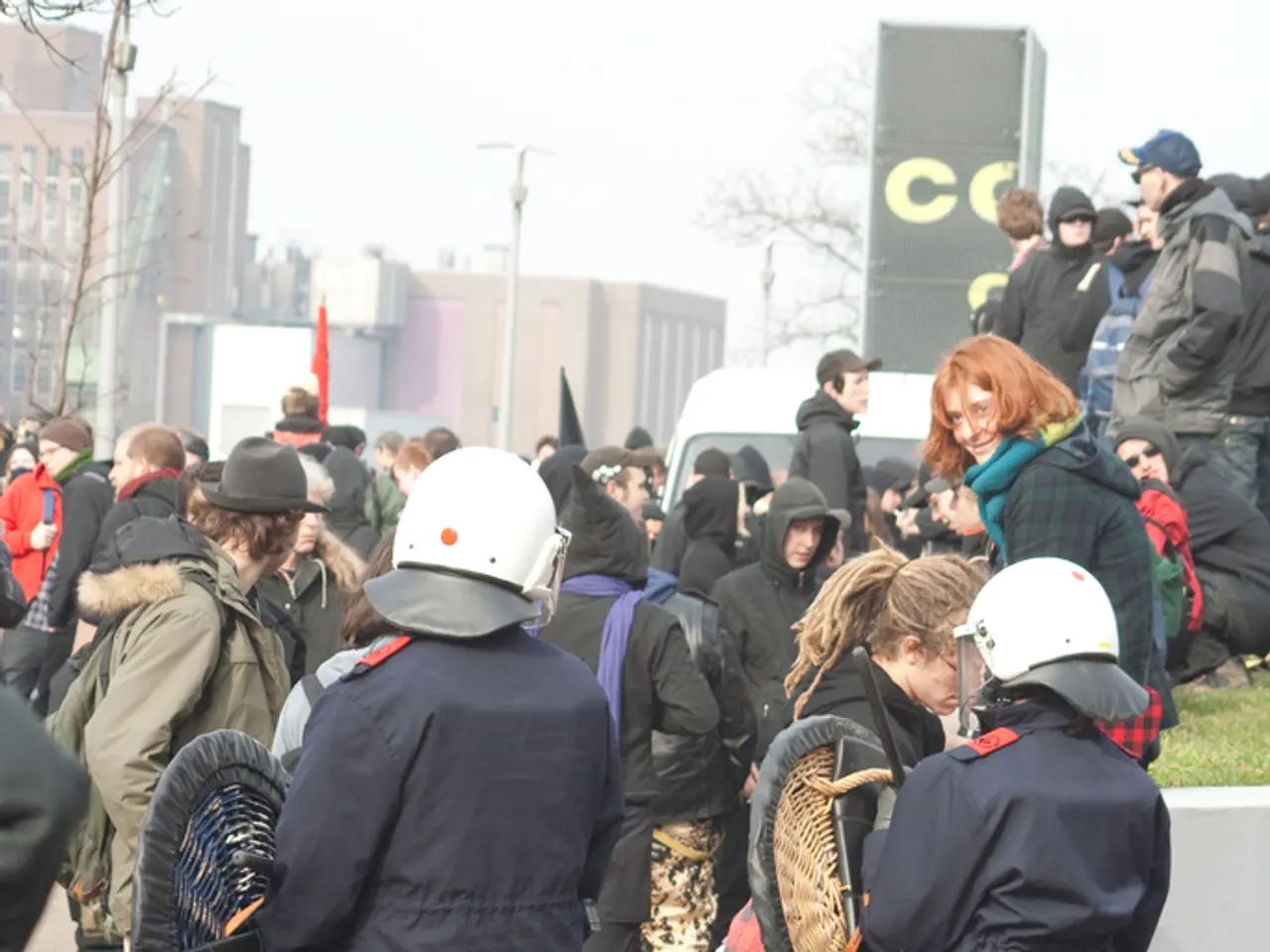"Easter Games Finale with Drumroll": This signifies the concluding event of the Easter Games, marked by the sound of drumbeats.
In the heart of the Easter Festival Salzburg, audience members were treated to a captivating performance of Mussorgsky's incomplete opera, "Chovanshchina." This iconic work, left unfinished upon the composer's death, has been the subject of numerous reconstructions and reinterpretations over the years.
For this production, the choir, comprising the Bachchor Salzburg and the Slovak Philharmonic Choir, delivered a powerful performance under the direction of Michael Schneider and Jan Rozehnal. The ensemble's strong musical performance received rapturous cheers from the audience at the premiere.
The lead role of Prince Ivan Chovansky was impressively portrayed by Vitalij Kowaljow, who showcased an imposing bass and a confident stage presence. Nadezhda Karyazina, who received the Herbert von Karajan Prize, played Marfa with a balance of anger, arrogance, and vulnerability, earning appreciative applause from the audience. Daniel Okulitch and Ain Anger also presented vocal assertiveness and acting depth in their roles.
Director Simon McBurney brought grand and impactful images to the production, while Gerard McBurney, his brother, worked on the existing sketches of "Chovanshchina." Tuomas Norvio electronically generated sounds to fill in gaps in the opera, providing a counterpoint to the harshness of the action. These sounds, along with the Finnish Radio Symphony Orchestra's precise, smooth, and impressively coloured performance under the direction of Esa-Pekka Salonen, integrated musically, directing with symphonic breadth and avoiding sentimentality.
The performance was a blend of reconstruction, interpretation, and reinterpretation, staying faithful to Mussorgsky's original sketches while incorporating new orchestration and sometimes cuts or rearrangements to fit performance considerations. Dmitri Shostakovich's famous performance version of "Chovanshchina" served as a significant influence in this process.
"Chovanshchina" is a powerful work that tells the story of the Moscow Streltsy uprising of 1682. The creative team's reinterpretation at the Easter Festival Salzburg offered a fresh and engaging take on this historical opera, resonating with contemporary audiences and festival context.
For those seeking more detailed specifics about the production's version, including who was involved in the reconstruction or any unique reinterpretations, further information may be available upon request or with additional search results.
The production of "Chovanshchina" at the Easter Festival Salzburg, in addition to its symphonic breadth, also featured a strategic use of electronic sounds by Tuomas Norvio, enhancing the original sketches and enriching the narrative with a modern aspect. Furthermore, the profit generated from ticket sales and merchandise could be used to support future entertainment events, bringing more music to the hearts of audience members.
